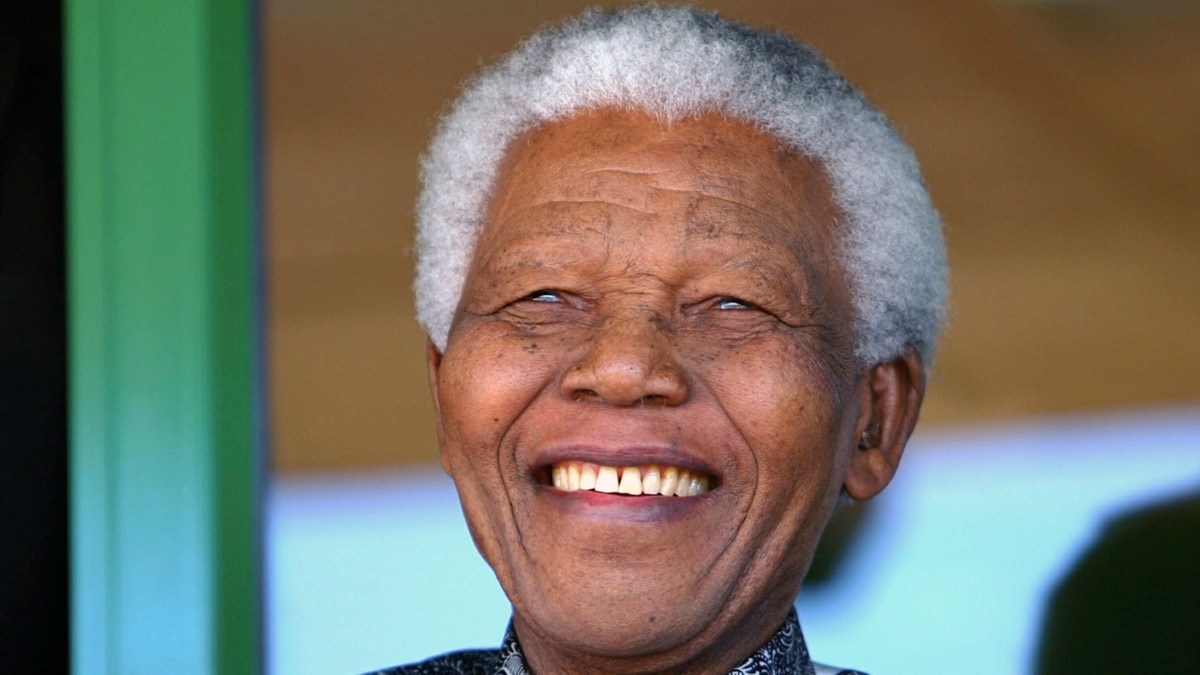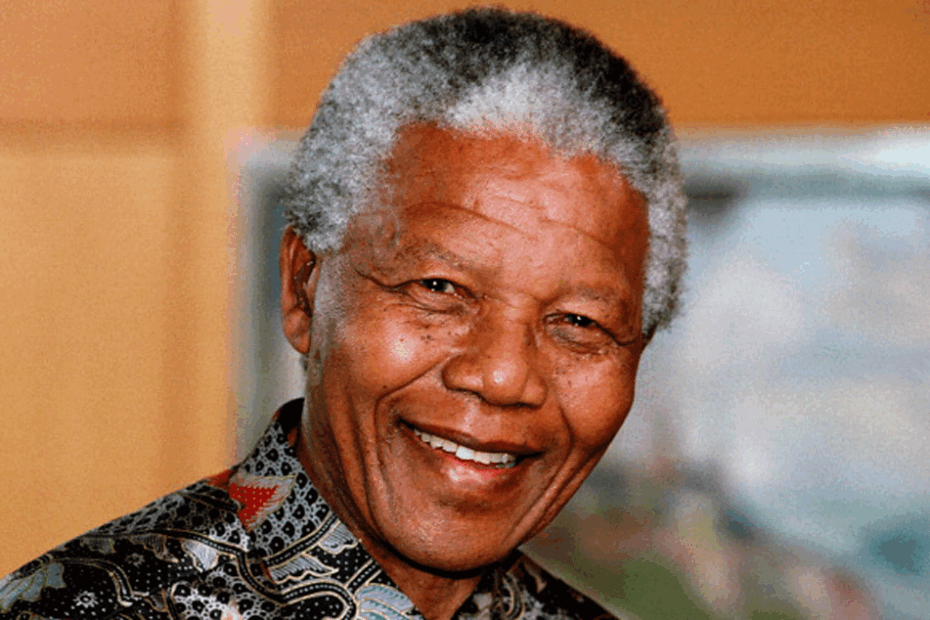Early Life and Background

Full Name: Nelson Rolihlahla Mandela
Date of Birth: July 18, 1918
Place of Birth: Mvezo, Eastern Cape, South Africa
Born into the Thembu royal family, Mandela was given the forename “Rolihlahla,” a Xhosa term meaning “pulling the branch of a tree” or metaphorically, “troublemaker.” His father, Gadla Henry Mphakanyiswa, served as a local chief and counselor to the Thembu king, which placed Mandela in a lineage of tribal leadership.
Following his father’s death when Mandela was just nine years old, he was adopted by Chief Jongintaba Dalindyebo, the acting regent of the Thembu people. This adoption changed the course of Mandela’s life, exposing him to tribal politics and a life of leadership from an early age.
Education and Early Political Awakening
Mandela attended Clarkebury Boarding Institute and later Healdtown, a Wesleyan college. In 1939, he enrolled at the University of Fort Hare, the only university for Black students in South Africa at the time. However, he was expelled for joining a student protest against university policies.
Fleeing an arranged marriage, Mandela moved to Johannesburg where he completed his BA degree through the University of South Africa and began studying law at the University of Witwatersrand. It was during these formative years in Johannesburg that Mandela’s political consciousness deepened.
Entry Into Politics and the African National Congress (ANC)
In 1944, Mandela joined the African National Congress (ANC), a political organization dedicated to fighting racial oppression. Along with Walter Sisulu, Oliver Tambo, and others, Mandela co-founded the ANC Youth League (ANCYL) to mobilize younger South Africans.
The 1950s marked Mandela’s rise as a leader. He advocated for non-violent resistance and was instrumental in organizing the Defiance Campaign in 1952—a series of civil disobedience actions against unjust apartheid laws.
Mandela and Tambo also opened the first Black law firm in South Africa, offering affordable legal counsel to Black South Africans who faced racial discrimination under apartheid.
The Sharpeville Massacre and a Shift in Strategy
On March 21, 1960, the Sharpeville Massacre occurred when South African police opened fire on peaceful protesters, killing 69 people. The event marked a turning point in the anti-apartheid struggle.
In response, the South African government banned the ANC. Mandela, increasingly convinced that peaceful protest was ineffective against a brutal regime, co-founded Umkhonto we Sizwe (“Spear of the Nation”), the armed wing of the ANC, in 1961. The group carried out sabotage operations against government infrastructure, avoiding loss of life where possible.
Arrest and the Rivonia Trial
In 1962, Mandela was arrested and convicted of leaving the country illegally and inciting workers to strike. While serving his sentence, authorities discovered documents linking him to Umkhonto we Sizwe.
Also Read: Leonardo Da Vinci Biography
He was subsequently tried in the Rivonia Trial (1963–1964), where he famously delivered a three-hour speech from the dock, ending with the words:
“I have cherished the ideal of a democratic and free society in which all persons live together in harmony and with equal opportunities… It is an ideal for which I am prepared to die.”
Mandela and his co-defendants were sentenced to life imprisonment.
27 Years in Prison: Robben Island and Beyond
Mandela spent 18 of his 27 years in prison on Robben Island, confined to a small cell, allowed only one visitor per year, and forced to do hard labor. Despite these conditions, he became a symbol of resistance, and his imprisonment galvanized the international community.
While in prison, Mandela refused offers for early release that required him to renounce armed struggle. His dignity and moral authority grew immensely, both within South Africa and abroad.
In the 1980s, under growing domestic and international pressure, the South African government began to reconsider its hardline stance. Behind-the-scenes negotiations began between the government and Mandela.
Release and Negotiations to End Apartheid
On February 11, 1990, Nelson Mandela walked out of Victor Verster Prison a free man after 27 years. The event was broadcast live around the world, symbolizing the beginning of the end of apartheid.
Mandela immediately resumed leadership of the ANC and began negotiations with then-President F.W. de Klerk. These talks eventually led to the dismantling of apartheid laws and the formation of a new, democratic South Africa.
In 1993, Mandela and De Klerk were jointly awarded the Nobel Peace Prize for their efforts in peacefully ending apartheid and laying the foundation for democracy.
South Africa’s First Black President
In April 1994, South Africa held its first multiracial elections. On May 10, 1994, Nelson Mandela was inaugurated as the first Black president of South Africa. His presidency emphasized reconciliation, nation-building, and forgiveness, rather than revenge.
He created the Truth and Reconciliation Commission, led by Archbishop Desmond Tutu, to investigate past human rights abuses and promote national healing.
Mandela’s presidency also saw efforts to rebuild the economy, improve education, and expand healthcare services. He prioritized creating a unified South African identity under the slogan: “Rainbow Nation.”
Retirement and Global Legacy
Mandela stepped down in 1999 after serving one term, setting a powerful example of democratic leadership and peaceful transition of power in a continent where many leaders clung to office.
In retirement, Mandela continued to be active in global peace and health initiatives. He established the Nelson Mandela Foundation to promote social justice, combat HIV/AIDS, and support education.
Mandela became a global elder statesman, revered by world leaders and ordinary citizens alike. His birthday, July 18, is celebrated internationally as Nelson Mandela International Day, encouraging people to dedicate 67 minutes of their time to helping others—one minute for each year he spent in public service.
Personal Life
Mandela married three times:
-
Evelyn Mase (1944–1958), with whom he had four children.
-
Winnie Madikizela-Mandela (1958–1996), a prominent anti-apartheid activist.
-
Graça Machel (1998–2013), widow of Mozambican President Samora Machel.
Despite personal challenges, including the loss of several children and public scrutiny of his marriages, Mandela remained committed to his vision for a better South Africa.
Death and Global Mourning
Nelson Mandela passed away on December 5, 2013, at the age of 95, after a prolonged illness. His death was met with an outpouring of grief and tributes from around the globe.
World leaders, royalty, celebrities, and millions of ordinary people honored his life and legacy in memorial services across continents. Then-U.S. President Barack Obama called him a “giant of history.”
Honors and Recognition
Nelson Mandela received more than 250 awards, including:
-
The Nobel Peace Prize (1993)
-
The Presidential Medal of Freedom (USA)
-
The Order of Canada
-
Honorary citizenships from several countries
-
Over 50 honorary degrees from universities worldwide
Statues and memorials honoring Mandela exist in cities like Johannesburg, London, Washington D.C., and The Hague.
Nelson Mandela’s Enduring Impact
Mandela’s life is a timeless lesson in courage, humility, and resilience. His fight against apartheid reshaped not just South Africa, but the global understanding of justice, equality, and human rights.
He showed that leadership is not about holding power but about empowering others. Even after decades in prison, he chose forgiveness over vengeance, dialogue over division, and hope over hatred.
His legacy lives on through his foundations, writings, and the millions of lives he inspired. Nelson Mandela’s name is now synonymous with freedom, peace, and dignity—values that transcend borders, race, and time.
Conclusion
The biography of Nelson Mandela is more than just a historical account—it is a blueprint for leadership, resistance, and reconciliation in the face of injustice. He remains one of the most influential figures of the 20th century and an enduring symbol of the triumph of the human spirit.
As the world continues to grapple with issues of inequality, racism, and division, Mandela’s life reminds us that a better world is possible—when we dare to dream, forgive, and lead with conviction.
